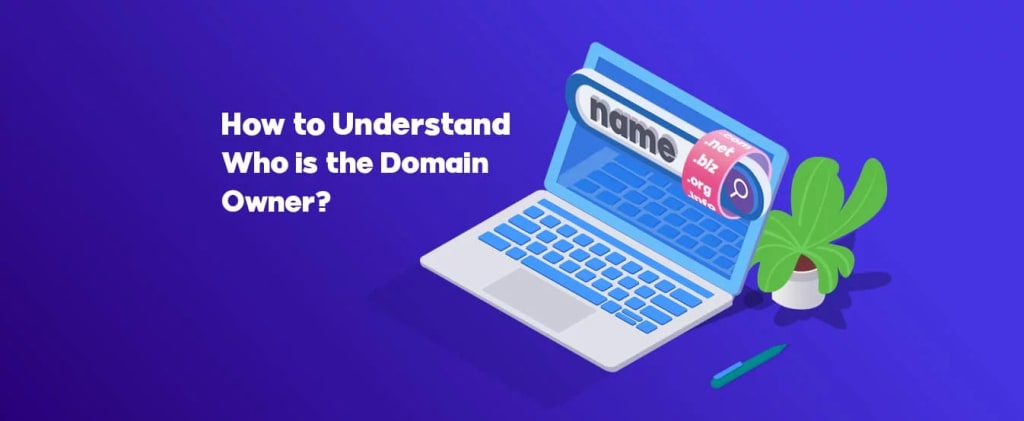Who Owns a Website?
In the vast realm of the internet, websites serve as virtual gateways to businesses, organizations, and individuals. But have you ever wondered who owns a particular website? Understanding website ownership is essential for various reasons, such as establishing credibility, initiating collaborations, protecting your online interests, and ensuring responsible online behavior.
Methods to Find Out Website Ownership
Utilizing WHOIS Lookup Content:
To find out who owns a website, one of the most common and effective methods is to use a WHOIS lookup. WHOIS is a protocol that provides registration and ownership information for domain names. By accessing WHOIS lookup services online and entering the domain name in question, you can retrieve valuable ownership details, including the registrant’s name, contact information, registration dates, and even the domain’s expiration date.
Checking the Website’s “About” Section Content:
Many websites include an “About” or “Contact Us” section that provides insights into the website’s ownership. Here, website owners often disclose their identities, providing their names, email addresses, or even social media profiles. Taking the time to explore these sections can not only help you find out who owns the website but also provide additional context about the purpose and values of the website.
Contacting the Web Hosting Provider Content:
If the previous methods do not yield the desired results, you can try reaching out to the web hosting provider. Websites are hosted by specific providers, and they maintain records of their clients. By contacting the hosting provider’s customer support and providing them with the website’s URL or domain name, you may be able to obtain the ownership information you seek. Remember to be prepared with specific details and legitimate reasons for requesting this information, as hosting providers prioritize user privacy.
Privacy Measures and Domain Ownership
Private Domain Registration Content:
In some cases, website owners may choose to protect their privacy by opting for private domain registration services. Private registration shields the owner’s personal information in the publicly accessible WHOIS database, making it more challenging to find out who owns the website. However, it’s important to note that private registration may not be available for all domain extensions, and some registrars charge an additional fee for this service. Respect for privacy is important, but it may limit the available avenues for finding ownership information.
Investigating the Website’s Legal Documentation Content:
Another avenue to explore is the website’s legal documentation, such as the Terms of Service or Privacy Policy. These documents often contain information about the entity or individual responsible for the website. By carefully examining these sections, you may uncover valuable insights regarding the website’s ownership, including company names, addresses, or any other legal identifiers.
The Importance of Website Ownership Transparency
Trust and Credibility Content:
Knowing who owns a website is crucial for establishing trust and credibility. Users are more likely to engage with websites that are transparent about their ownership, as it gives them confidence in the legitimacy and authenticity of the content, products, or services offered.
Collaboration and Communication Content:
Finding out who owns a website opens up opportunities for collaboration and communication. Whether you’re interested in partnering with a website owner, reaching out for professional inquiries, or seeking permission for content usage, knowing the owner’s identity facilitates smoother interactions and fosters meaningful connections.
Copyright and Legal Issues Content:
Understanding website ownership is vital for identifying potential copyright infringements or resolving legal issues. If you come across a website that is using your copyrighted material without permission, knowing the owner’s identity allows you to take appropriate action to protect your intellectual property rights. Additionally, in case of any legal disputes or violations related to the website, knowing the owner’s identity is crucial for initiating legal proceedings or seeking resolution.
Ethical Online Behavior and Accountability
Responsible Online Conduct Content:
Knowing who owns a website promotes responsible online behavior. When individuals are aware of the ownership behind a website, they are more likely to act responsibly and refrain from engaging in harmful or fraudulent activities. It fosters accountability and encourages website owners to uphold ethical standards in their online presence.
Transparency in Data Collection and Privacy Content:
Transparency in website ownership also extends to data collection and privacy practices. By knowing who owns a website, users can make informed decisions about sharing personal information and understand how their data is being handled. It enables individuals to hold website owners accountable for maintaining privacy standards and complying with relevant data protection regulations.
Conclusion:
Unveiling the ownership of a website is a crucial step in navigating the online landscape. By utilizing methods like WHOIS lookup, exploring the website’s “About” section, and contacting the hosting provider, you can uncover valuable ownership information. While privacy measures like private domain registration and legal considerations may pose challenges, understanding website ownership promotes trust, collaboration, legal compliance, responsible online behavior, and accountability. Stay informed and exercise due diligence to unravel the ownership behind the websites you encounter, ensuring transparency and informed interactions in the digital world.
You may also like
-
Classified Websites in India: A Digital Marketplace for All
-
Why Sod Installation is the Quickest Way to a Beautiful Lawn?
-
The Role of Statutes and Case Law in Policy Limit Access
-
Setting Up a Home Theater with LG CineBeam Q The Ultimate Guide
-
Business Listing Sites in USA: 2025 Guide for Better Online Visibility

